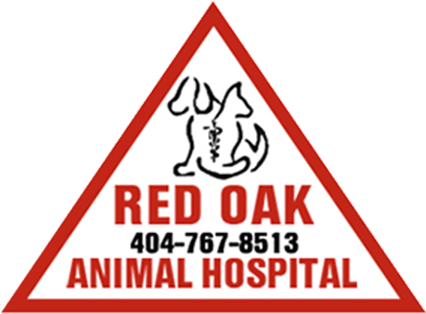Food Allergies
Food allergies can cause significant problems in your pet. Common clinical signs related to food allergies include one or more of the following: itchy skin, licking paws, skin infections, ear infections, poor coat quality, dandruff, anal gland impaction, intermittent runny stool, intermittent vomiting or anorexia, and excessive gas. The most common causes of food allergies are listed from most to least common: beef, chicken, dairy, soy, and grain. Although not as common as environmental allergies, food allergies are preventable and would be a relatively good cause for your pet’s clinical signs.
There are no blood tests that can determine if a dog or cat has a food allergy. The blood tests that are offered have been debunked numerous times through well formulated clinical trials and scientific studies. The only way to rule out food allergies in your pet is through an elimination diet. As it has been shown that many over the counter limited-ingredient diets contain contamination during manufacturing, a prescription diet is necessary to confidently rule out food allergic disease1. Rarely, multiple food trials are needed, which will be recommended if we have a high degree of suspicion for food allergies and your pet fails an initial food trial. Below are the instructions for your dog or cats food allergy trial along with some of the common pitfalls.
We will help select the proper food for your pet. This typically is either a prescription hydrolyzed diet or a novel protein diet. Often both canned and dry options are available for each diet.
- Please feed only the prescribed food. If emptying into a container, the container must be washed thoroughly with soap and warm water to prevent contamination of the new food. In addition, wash all bowls thoroughly and remove all edible treats from the house.
- Allow a 5-7 day transition period from current diet to new diet. Save a portion of the current diet for later challenge.
- Continue feeding the elimination diet for a minimum of 8 weeks – sometimes longer. If your pet has a food allergy, you should note a reduction in itchiness and/or gastrointestinal upset within the first 4 weeks, but complete remission can take a total of 8-12 weeks.
Pitfalls:
- Chewable medications often contain flavorings that can cause reactions in food allergic dogs. These include heartworm medication, flea/tick medications, NSAIDS, and any medication that comes in a capsule. If your dog is on chewable heartgard or flea/tick prevention we will need to use something different (such as topical revolution/seresto collar/frontline) for the 2-3 month diet trial period
- Supplements including vitamins, nutraceuticals, and flavored probiotics
- Rawhides, pig ears, jerky treats, flavored chews/toys, dental products and toothpaste
- Complicating factors include concurrent parasites, bacterial infections, yeast infections, and other skin conditions. Please work with us to help eliminate these factors.
If necessary, you may use certain vegetables as treats including carrots and broccoli. Pills can be hidden in bananas. Finally, you can use non-edible treats (if cleaned) such as kongs stuffed with vegetables or the prescription elimination diet canned food, which when stuffed into the kong and frozen makes for a very fun toy for your dog to chew and enjoy.
Some additional helpful links:
https://vetnutrition.tufts.edu/2020/03/food-allergy-testing/
https://vetnutrition.tufts.edu/2017/01/food-allergies/
1 Fossati et al, “Determination of mammalian DNA in commercial canine diets with uncommon and limited ingredients,” Veterinary Medicine and Science 5, no. 1 (2019): 30-38.
Phone:
Address:
4895 Ben Hill Road, College Park, GA 30349
